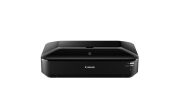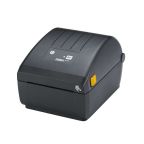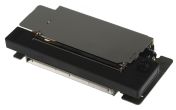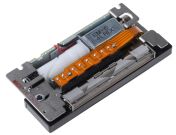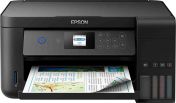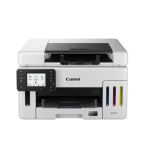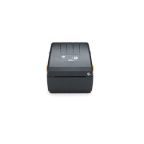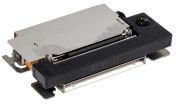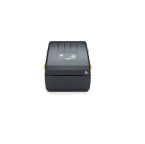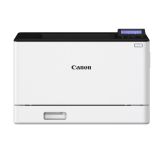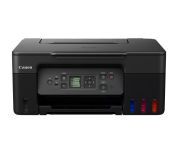Skrivbordsskrivare
Laserskrivare
Laserskrivare, till skillnad från andra skrivbordsskrivare, använder inte bläck utan en tonerkassett. Laserskrivare fungerar genom att läsa elektronisk data från bilden eller dokumentet som skickas från din dator. Denna data projiceras sedan på en ljuskänslig trumma inuti skrivaren som bygger upp ett mönster av statisk elektricitet som representerar dokumentet. Ett torrt pulver som kallas toner attraheras sedan av denna statiska elektricitet till papperet och fixeras med hjälp av uppvärmda rullar, vilket producerar ett utskrivet dokument av hög kvalitet.
Matrisskrivare
En matrisskrivare använder en slagprocess för att skriva ut. Data för bilden skickas från din dator till skrivaren. Denna bild reproduceras sedan av skrivaren med hjälp av en serie punkter som skapas av en rad små stift som drivs genom ett färgband. Det finns 2 typer av matrisskrivare, 9 och 24 nålar. Antalet nålar avgör den slutliga utskriftskvaliteten, där en 24-nålars skrivare producerar mycket skarpare grafik och text. Utskriftshastigheten mäts i tecken per sekund snarare än sidor per minut. Matrisskrivare är idealiska när innehållet är viktigare än kvaliteten på utskriften.
Bläckstråleskrivare
Bläckstråleskrivare återskapar bilder genom att skjuta ut droppar av bläck från bläckpatroner på papper eller annat underlag. Bilden från din dator skickas till skrivaren och lagras i skrivarens buffertminne. Papperet dras genom skrivaren och ett skrivhuvud rör sig fram och tillbaka över det. Skrivhuvudet innehåller munstycken och när det rör sig över papperet drar det rätt färg från bläckpatronerna och skjuter ut bläcket på papperet. Bläcket torkar sedan och producerar det färdiga utskrivna dokumentet. De flesta bläckstråleskrivare är plug and play, vilket innebär att de är lätta att installera och redo för omedelbar användning. Byte av bläck är enkelt och många skrivare har patroner som snäpps på plats. Vissa bläckstråleskrivare levereras med WiFi-anslutning som standard, vilket gör att du kan ansluta till dina smarta enheter, och har pekskärmar som möjliggör ytterligare sammankoppling och kontroll.
